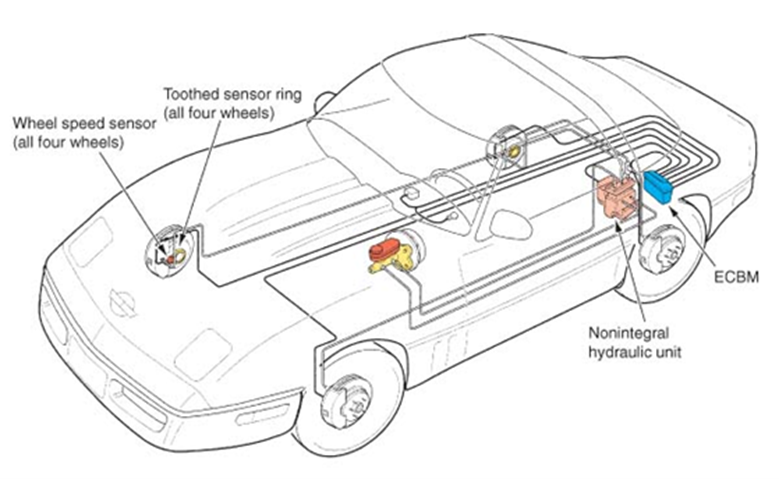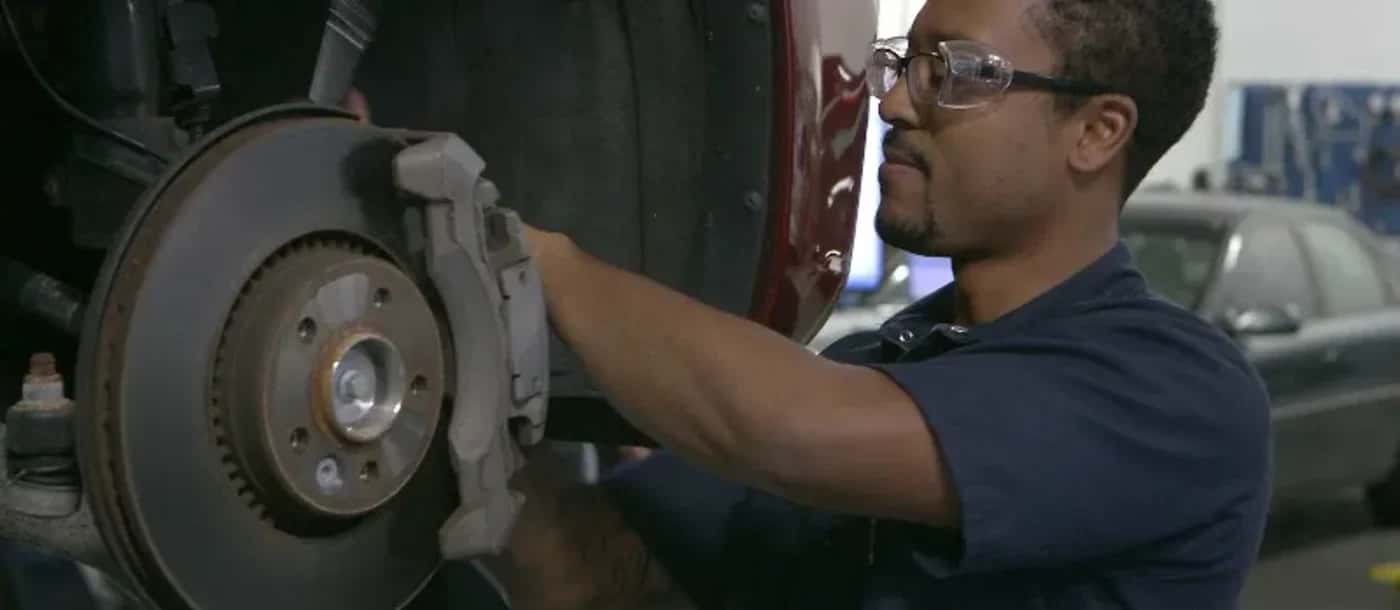UTI’s anti-lock braking systems course, Braking Systems, is designed to provide students with in-depth knowledge and hands-on training experience in diagnosing, servicing and repairing modern braking systems.1,18
What You'll Learn in the Anti-Lock Braking Systems Course
The Braking Systems course emphasizes the critical role braking systems play in vehicle safety and performance. Students will be able to diagnose and service wheel bearings, brakes, power assist systems, brake hydraulic systems, brake electrical systems, anti-lock, traction and stability systems.

This course covers:
Diagnosing and Servicing Wheel Bearings
Students are taught how to inspect, diagnose and service wheel bearings, a vital component for maintaining proper wheel alignment and smooth vehicle operation.
Brake Power Assist Systems
The Braking Systems course covers the function and repair of brake power assist systems, ensuring students understand how these systems amplify braking force and contribute to overall safety.
Hydraulic Brake Systems
Students will explore the principles of brake hydraulic systems, including how to identify and repair issues with master cylinders, brake lines and calipers for efficient braking performance.
Electrical Brake Systems
The course includes training on the electrical components of braking systems, equipping students to diagnose and resolve issues related to electronic brake controls and sensors.
Anti-Lock Braking Systems (ABS)
A key focus of the anti-lock braking systems course is understanding anti-lock braking systems. Students are taught how ABS prevents wheel lockup, enhances vehicle control and how to troubleshoot common ABS problems.
Traction Control and Stability Control Systems
Students will delve into the operation and repair of traction control and stability control systems, which are essential for maintaining vehicle stability during acceleration and cornering.
Learn All About Anti-Lock Braking Systems at UTI!
Throughout our anti-lock braking systems course, students are taught how to diagnose and repair a variety of braking systems. From hydraulic brakes to advanced stability controls, this course equips students with the skills needed to handle today’s vehicle braking technology.
Get more insight into our Automotive Technology program by requesting more information or contacting an Admissions Representative at 1-800-834-7308 today.
Frequently Asked Questions
Students learn a range of things in the braking systems course, including how to diagnose and service wheel bearings, how to work with brake hydraulic systems, how to repair brake electrical and power assist systems and more.
Yes, UTI’s ABS course includes hands-on training in our industry-standard labs.18 Students utilize equipment such as hydraulic presses, hub trainers, chassis trainers and vehicles equipped with ABS, traction control and stability control systems.
Anti-lock braking systems are designed to prevent wheel lockup during hard braking by rapidly modulating brake pressure. This allows the driver to maintain steering control, enhancing vehicle safety. In contrast, conventional brake systems can cause wheels to lock during sudden stops, leading to skidding and loss of control.
The ABS course is a component of UTI’s core Automotive Technology program. It builds upon foundational courses in undercar systems and electrical fundamentals, providing essential knowledge and skills for aspiring automotive technicians.
The training provided in the braking systems course at UTI can help give you a foundation of knowledge that can be built upon when pursuing a role as a brake system technician.

